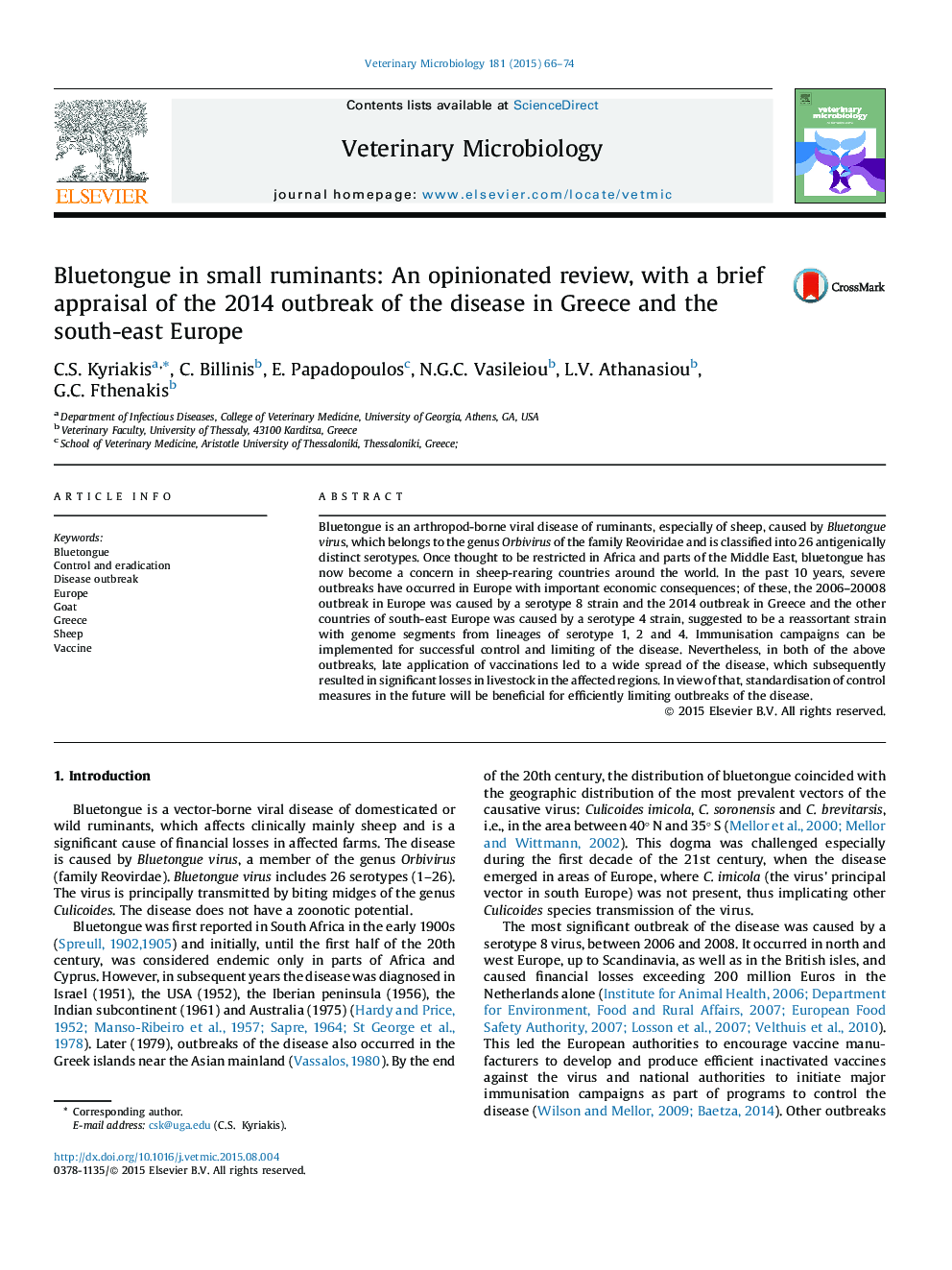| Article ID | Journal | Published Year | Pages | File Type |
|---|---|---|---|---|
| 5799750 | Veterinary Microbiology | 2015 | 9 Pages |
Bluetongue is an arthropod-borne viral disease of ruminants, especially of sheep, caused by Bluetongue virus, which belongs to the genus Orbivirus of the family Reoviridae and is classified into 26 antigenically distinct serotypes. Once thought to be restricted in Africa and parts of the Middle East, bluetongue has now become a concern in sheep-rearing countries around the world. In the past 10 years, severe outbreaks have occurred in Europe with important economic consequences; of these, the 2006-20008 outbreak in Europe was caused by a serotype 8 strain and the 2014 outbreak in Greece and the other countries of south-east Europe was caused by a serotype 4 strain, suggested to be a reassortant strain with genome segments from lineages of serotype 1, 2 and 4. Immunisation campaigns can be implemented for successful control and limiting of the disease. Nevertheless, in both of the above outbreaks, late application of vaccinations led to a wide spread of the disease, which subsequently resulted in significant losses in livestock in the affected regions. In view of that, standardisation of control measures in the future will be beneficial for efficiently limiting outbreaks of the disease.
